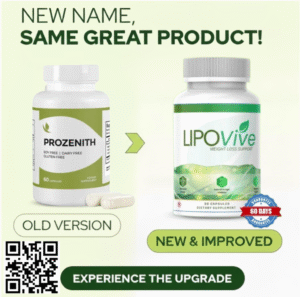The effects of Aciloc 150 on acidity and heartburn
Acidity and heartburn are among the most common digestive issues affecting millions of people worldwide. Whether caused by lifestyle factors,...

Acidity and heartburn are among the most common digestive issues affecting millions of people worldwide. Whether caused by lifestyle factors, poor dietary habits, or underlying medical conditions, these symptoms can severely impact daily life. Aciloc 150 Tablet, containing ranitidine 150 mg, is widely prescribed for the management of acidity, gastroesophageal reflux disease (GERD), peptic ulcers, and heartburn. It belongs to the class of medications known as H2 receptor blockers, which reduce excess stomach acid production, thereby providing relief from discomfort and promoting healing of the digestive tract.
This article explores the uses, benefits, dosage, mechanism of action, side effects, and precautions of Aciloc 150, along with helpful lifestyle recommendations for people suffering from acidity and heartburn.
Understanding Acidity and Heartburn
What is Acidity?
Acidity occurs when the stomach produces excess hydrochloric acid, leading to irritation of the stomach lining. Symptoms may include:
- Burning sensation in the chest or throat
- Sour taste in the mouth
- Nausea or bloating
- Indigestion
What is Heartburn?
Heartburn is a symptom of acid reflux, where stomach acid flows back into the esophagus. It creates a burning sensation behind the breastbone, often after meals or when lying down. Chronic heartburn is often associated with GERD, which requires long-term treatment and medical supervision.
What is Aciloc 150?
Aciloc 150 Tablet contains Ranitidine Hydrochloride 150 mg, an H2 receptor antagonist. It works by blocking histamine receptors in the stomach lining, thereby reducing acid secretion.
Key Uses of Aciloc 150:
- Relief from acidity and heartburn
- Treatment of GERD (gastroesophageal reflux disease)
- Management of peptic ulcers (stomach and duodenal ulcers)
- Relief from acid indigestion
- Used in preventing ulcers in patients taking NSAIDs (non-steroidal anti-inflammatory drugs)
How Does Aciloc 150 Work?
Aciloc 150 blocks the action of histamine-2 receptors in the stomach lining. Histamine is responsible for stimulating acid secretion. By blocking this pathway, Aciloc 150:
- Reduces acid production
- Provides symptomatic relief from burning and indigestion
- Helps in healing ulcers and preventing recurrence
- Decreases acid reflux into the esophagus, reducing heartburn
Dosage and Administration of Aciloc 150
The dosage of Aciloc 150 varies depending on the condition:
- Acidity/Heartburn: 150 mg once or twice daily as advised by a doctor
- GERD: 150 mg twice daily
- Peptic Ulcer: 150 mg twice daily or 300 mg at bedtime
- NSAID-induced ulcers: 150 mg twice daily
Important Guidelines:
- Always follow the doctor’s prescription.
- Take the tablet with water, before or after meals.
- Do not exceed the recommended dose.
- Duration of treatment depends on severity of symptoms.
Benefits of Aciloc 150
- Quick Relief from Acidity – Works effectively to control excess acid production.
- Soothes Heartburn – Reduces reflux and provides comfort.
- Promotes Healing – Helps ulcers heal faster by lowering stomach acid.
- Prevents Relapse – Long-term use under medical guidance can prevent recurrence of acidity and ulcers.
- Well-Tolerated – Generally safe and effective when taken under medical supervision.
Possible Side Effects of Aciloc 150
Like all medicines, Aciloc 150 may cause side effects in some patients. Common ones include:
- Headache
- Dizziness
- Constipation or diarrhea
- Nausea and vomiting
- Stomach pain
Rare but Serious Side Effects:
- Liver function disturbances
- Irregular heartbeat
- Mental confusion (in elderly patients)
- Severe allergic reactions
If any serious side effects occur, immediate medical attention is required.
Precautions and Warnings
Before taking Aciloc 150, consider the following:
- Pregnancy & Breastfeeding: Should be taken only if prescribed by a doctor.
- Kidney or Liver Problems: Dosage may need adjustment.
- Long-Term Use: Prolonged use may mask serious conditions like stomach cancer, hence regular check-ups are advised.
- Drug Interactions: Inform your doctor about all medicines you are taking, especially blood thinners, antifungals, and anti-HIV drugs.
Lifestyle Tips to Manage Acidity and Heartburn Along with Aciloc 150
Medicines like Aciloc 150 are effective, but long-term management also requires lifestyle modifications:
Dietary Tips
- Avoid spicy, oily, and junk food.
- Eat smaller, frequent meals instead of large portions.
- Limit caffeine, alcohol, and carbonated drinks.
- Drink plenty of water.
Lifestyle Habits
- Maintain a healthy body weight.
- Avoid lying down immediately after eating.
- Elevate the head of your bed to prevent reflux at night.
- Quit smoking as it worsens acid reflux.
Stress Management
Stress can trigger acidity; practice relaxation techniques like yoga, meditation, or deep breathing.
Aciloc 150 vs Other Acid-Reducing Medications
- Antacids (e.g., Gelusil, Digene): Provide quick but temporary relief.
- Aciloc 150 (Ranitidine): Provides longer-lasting control by reducing acid production.
- Proton Pump Inhibitors (PPIs like Omeprazole, Pantoprazole): More potent acid reducers, used in severe GERD or resistant ulcers.
Aciloc 150 is often chosen for mild to moderate cases and when quick symptom control is needed.
Buying Aciloc 150 Online Safely
When purchasing medicines like Aciloc 150 online, always choose trusted pharmacies like DosePharmacy to ensure genuine products. Counterfeit or expired medicines may be harmful to health. Always cross-check with your doctor before switching brands or suppliers.
Conclusion
Aciloc 150 Tablet (Ranitidine 150 mg) is an effective and widely prescribed medication for acidity, heartburn, GERD, and peptic ulcers. By reducing excess stomach acid production, it not only relieves symptoms but also promotes healing of the digestive tract. While generally safe, it should always be taken under medical guidance, with lifestyle changes to prevent recurrence.




